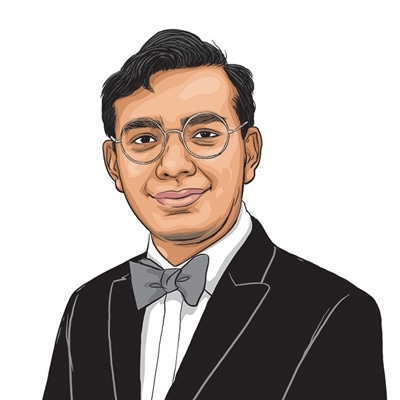Opinion Death by suicide of a 16-year-old queer person: Why don’t you care when we are bullied?
Pranshu is not the first child to be driven to suicide. Unfortunately, he will not be the last. Bullying is the lived reality of thousands of queer kids in this country and yet, we have no regimen in place to deal with it, both in schools and at an institutional level
 Bullying is the lived reality of thousands of queer kids in this country and yet, we have no regimen in place to deal with it, both in schools and at an institutional level.
Bullying is the lived reality of thousands of queer kids in this country and yet, we have no regimen in place to deal with it, both in schools and at an institutional level. “Ch*kka”. “Hijda”. “Baila”. “Gud”. These were the names I was called every day, multiple times throughout middle and high school because I was effeminate. Those were the days when social media was just entering our lives, and the bullying was not perhaps as vehement and vicious as it is today. I write this piece, in the aftermath of relentless attacks on Pranshu, a sixteen-year-old queer teen who died by suicide. He had been facing mass online bullying.
His only fault seemed to be that he wanted to be himself. Following his death, there were campaigns such as #JusticeForPranshu seeking justice. But Pranshu was not the first child to be driven to suicide. Unfortunately, he will not be the last. I would have been one if not for the right interventions at the right time. Bullying is the lived reality of thousands of queer kids in this country and yet, we have no regimen in place to deal with it, both in schools and at an institutional level.
Queer kids, especially during middle and high school, are more vulnerable to bullying. Name-calling is just the tip of the iceberg. Violence, both physical and sexual, is common not just by peers but also by the teachers in whose care the students are. The cascading effects on the emotional, mental and physical health of the children are enormous, and in some cases, we lose them to suicide. Data is clear globally: LGBTQ+ young people continue to suffer higher health and suicide risks than their peers. According to a 2019 report by UNESCO New Delhi, physical bullying affects 60 per cent of high school and middle school students and affects 50 per cent of students in higher secondary schools. The same report also said that in primary schools, the incidence of sexual violence was as high as 43 per cent. For how long will we tolerate this? It is time that we say enough. We cannot accept ignorance. We cannot accept intolerance. We cannot accept name-calling. We cannot lose any more kids.
Much after I graduated from school, I wrote to my principal, and the management, outlining my homophobic bullying and calling upon the school to take active steps to equip teachers to deal with bullying. Alas, after a few email exchanges, and me drawing up a detailed plan for the school, I was told that the execution would take a long time because there were more emergent issues that the school had to deal with. The response was, “What priority would we give for LGBTQ training over all such basic issues?”, failing to understand that the survival of LGBTQ+ kids was a basic issue — is a basic issue. It has been over a year since I last wrote to the school and have not heard anything since. Teachers need to be trained in encouraging queer kids, taking steps to ameliorate bullying and showing acceptance. One such effort was undertaken by the NCERT which put out a teacher-training manual that could be a good first step towards helping queer children. It was pulled down after the opposition from the National Commission for Protection of Child Rights, and the right wing. Members of the committee were trolled, and some were transferred. If the NCPCR was as concerned as it seemed to be when it filed an intervention in the marriage equality case to oppose adoption by queer people, why is it silent on the death of numerous queer kids? Does the mandate of the NCPCR only cover cis-gender, heterosexual kids? The NCPCR has failed in its primary duty by failing to protect queer kids.
Sadly, the death of Pranshu has not gathered a fraction of the media coverage that the marriage equality hearings got. Suicide and death of queer persons perhaps is not as palatable a queer issue as marriage, and thus, a disposable queer rights issue. But in their wake, these deaths leave the queer community shaken and depressed. We are treated like second-class citizens with no redress for discrimination and bullying, and our lives seem disposable. But the queer community will not forget them, nor will we let the world forget them. In the wake of their death, say their names. Do not forget them. Anjana Hareesh. Avinshu Patel. Arvey Malhotra. Pranshu. And countless others that we may never know.
The writer is a lawyer at the Supreme Court of India and a bioethicist






